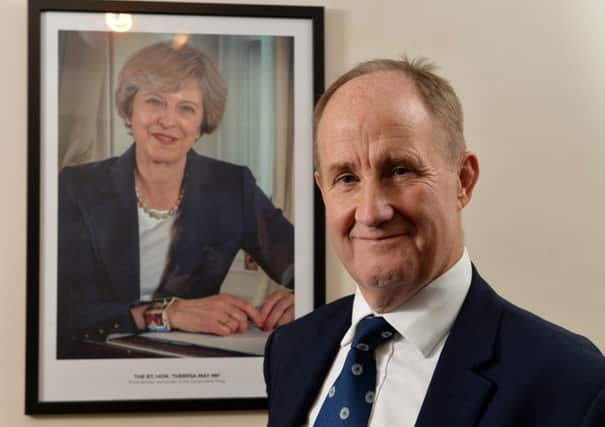Greg Wright: Even the dead could not escape from the greedy bankers’ clutches


Normally, executive summaries of Royal Commission reports are a perfect cure for insomnia. However, anyone leafing through the findings of a major probe into the misdeeds of the banking sector in Australia will probably endure a sleepless night.
It uncovered evidence of wide-scale misconduct involving some of Australia’s biggest financial institutions. Victims were targeted with predatory loans by bankers with little interest in ethics. The Australian Royal Commission into Misconduct in the Banking, Superannuation and Financial Services Industry was told that some customers had been financially ruined by banks and industry advisers. The inquiry heard that banks had collected fees for non-existent services and some institutions had even charged fees to dead customers.
Advertisement
Hide AdAdvertisement
Hide AdThe commission concluded that this behaviour was driven by greed. As the executive summary of its interim report states: “How else is charging continuing advice fees to the dead to be explained?
“Selling became their focus of attention. Too often it became the sole focus of attention. Products and services multiplied. Banks searched for their share of the customer’s wallet.”
“From the executive suite to the front line, staff were measured and rewarded by reference to profit and sales.”
When misconduct was revealed, it either went unpunished “or the consequences did not meet the seriousness of what had been done”.
Advertisement
Hide AdAdvertisement
Hide AdThe Australian conduct regulator rarely went to court to publicly shame those responsible for mistreating customers, the commission found. When misconduct was revealed, the regulatory response was inadequate.
“Infringement notices imposed penalties that were immaterial for the large banks,’’ the commission found.
The Australian government said it would act on all 76 recommendations made by the inquiry in a bid to restore the big banks’ shattered reputations.
Although it paints a grim picture, the commission’s report also provides a template for the type of approach that might help to bring justice to victims of bankers in Britain.
Advertisement
Hide AdAdvertisement
Hide AdThe scale and complexity of banking misconduct in the UK has been breathtaking. If you don’t believe me, I would advise you to look at the vast sums set aside by the banks to deal with a host of “legacy” issues.
A Royal Commission probe – or even a form of truth and reconciliation commission – could finally slam the door on this terrible era.
Growing numbers of British businesses also believe that only a financial services tribunal would have the regulatory muscle to provide justice for SMEs (small-and-medium-sized enterprises) who have been mis-sold complex products and generally abused by the bankers.
A new survey by the Institute of Directors (IOD) found that 70 per cent of its members had expressed “strong and explicit support” for a new tribunal.
Advertisement
Hide AdAdvertisement
Hide AdThe IOD members are not lone voices. Groups as varied as the Financial Conduct Authority, the Treasury Select Committee, the Small Business Commissioner, TSB Bank, Metro Bank, Triodos Bank and the Finance and Leasing Association, have all spoken in support of the tribunal because they believe it will ensure justice is seen to be done.
Kevin Hollinrake MP, co-chairman of the All Party Parliamentary Group on Fair Business Banking, said: “Business leaders have made it perfectly clear that they do not have confidence in the reformed dispute resolution landscape and urgently require a tribunal to protect them from future business banking abuses.”
The tribunal could force witnesses to testify and publish documents. It could pick over the ruins of insolvent firms to see if rogue bankers were to blame.
It would shed light into some of the darkest corners of Britain’s corporate life. In Australia, the commission found that short term profit was pursued at the expense of honesty.
If the UK banks have really changed their ways, they must concede that a tribunal would have a cleansing and cathartic effect.